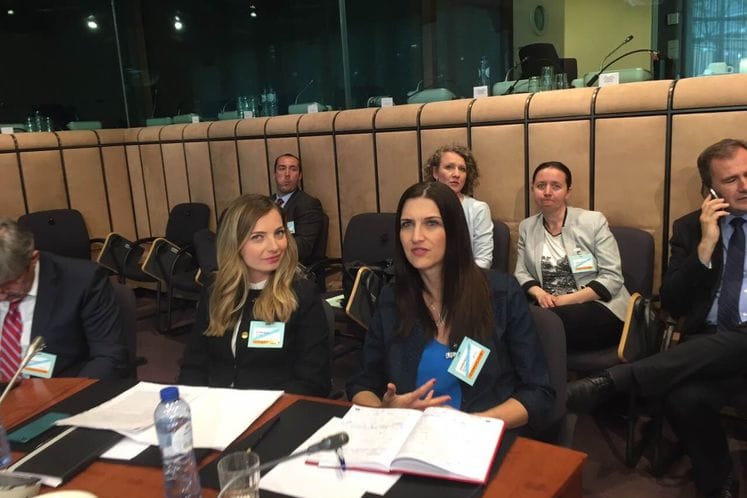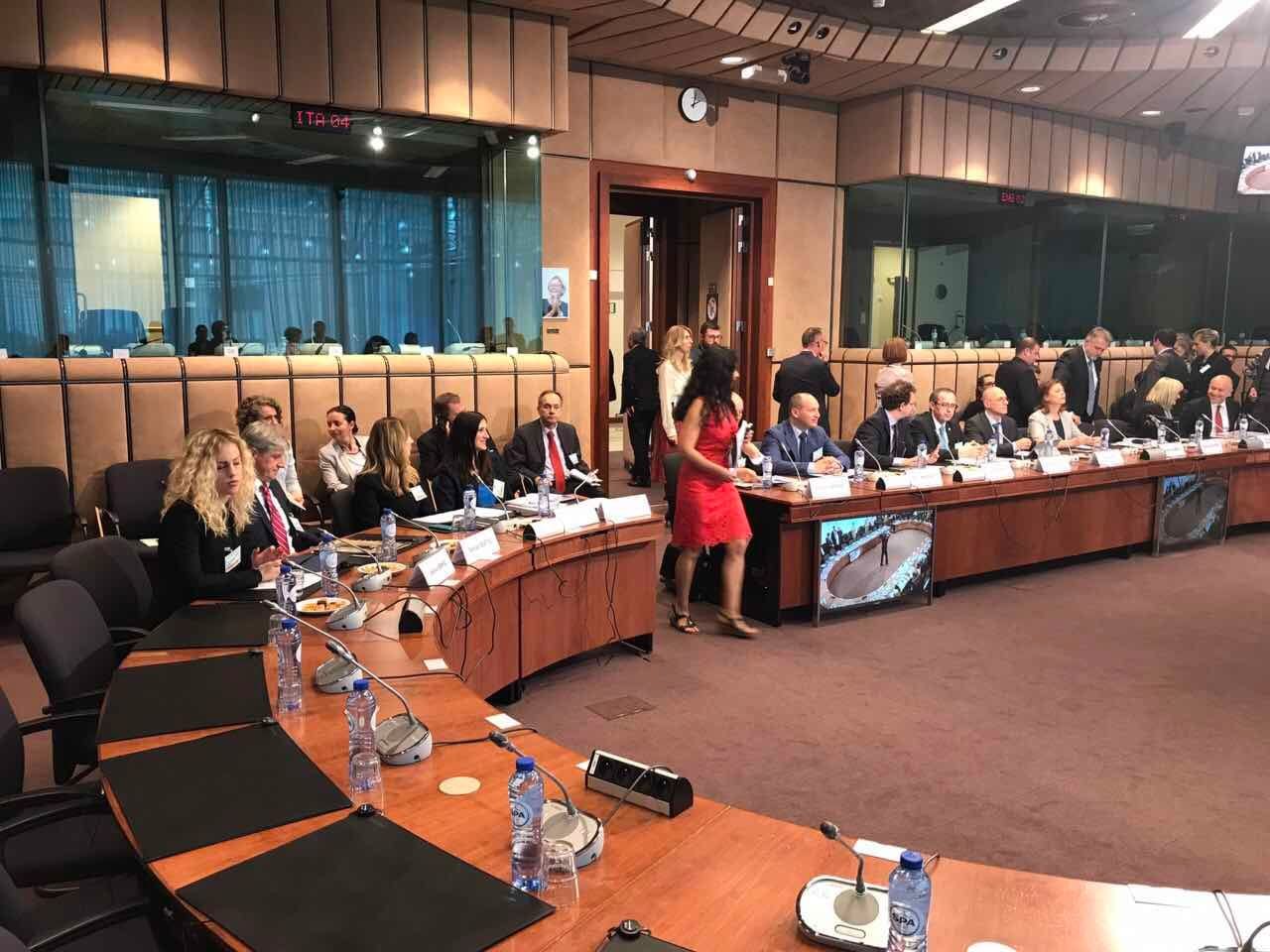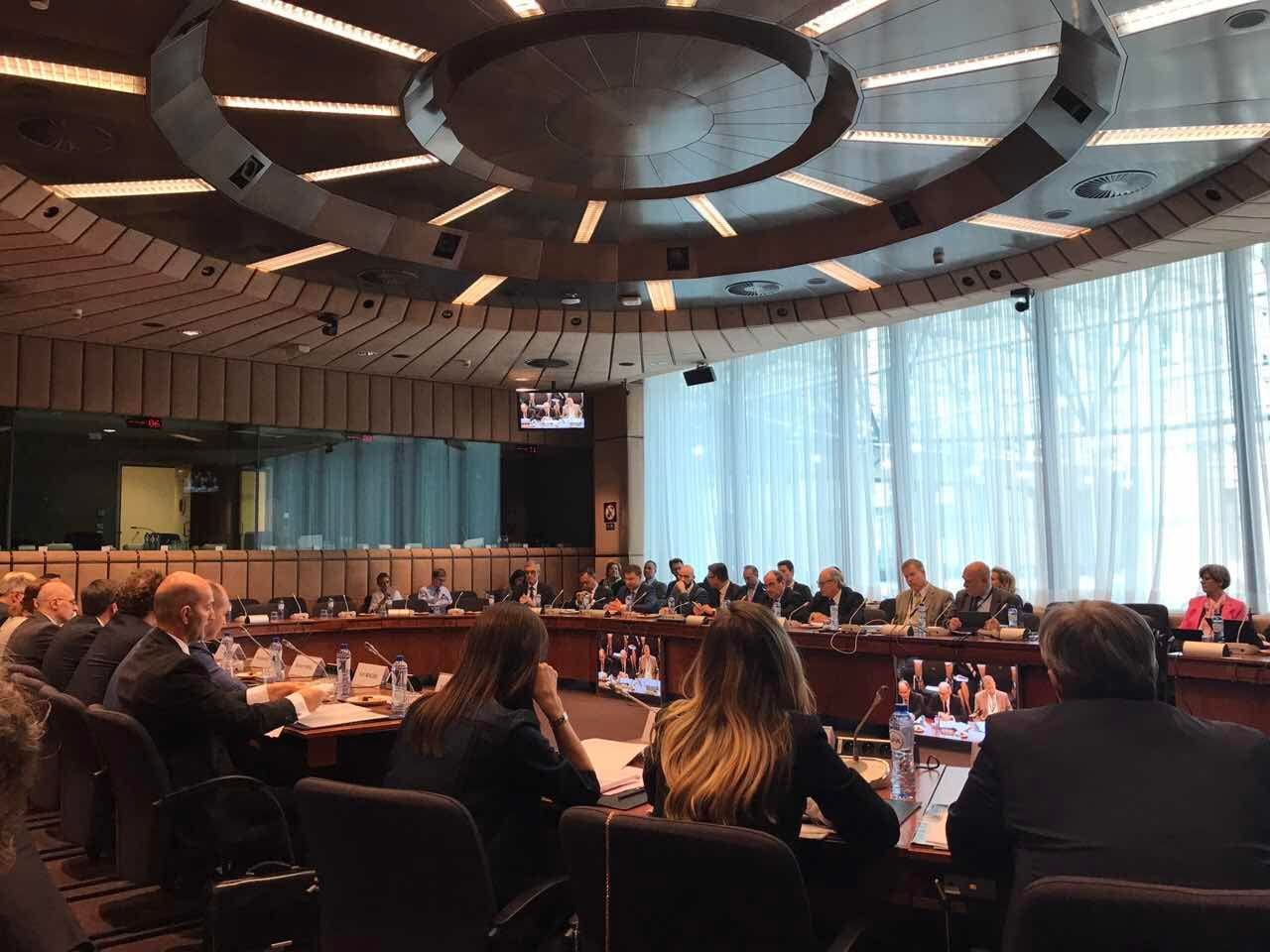- Government of Montenegro
ERP 2017-2019 Assessment: Praise and recommendatio...
ERP 2017-2019 Assessment: Praise and recommendations to Montenegro



Delegation of the Government of Montenegro, led by Prime Minister's Advisor for Economic Affairs and Coordinator of the Economic Reform Programme of Montenegro Nina Vujošević, attended today a meeting of Ministers of the Western Balkans and Turkey, which was held in Brussels in the framework of economic and financial dialogue between the EU and the Western Balkans and Turkey. It was the final meeting in the process of assessing the Economic Reform Programme for the period 2017-2019 in the economic and financial dialogue of the EU and the countries of the Western Balkans and Turkey. The conclusions and recommendations made by the EU to Western Balkan countries and Turkey were adopted in the further process of economic governance and economic policy management in the next midterm and for the preparation of the 2018 Economic Reform Programme.
In the process of assessing the Economic Progress Programme, the EU commended Montenegro's progress in drafting this year's Economic Reform Programme, with recommendations to adopt a midterm fiscal strategy with fiscal consolidation measures that will stabilise public debt, as well as to reduce the share of public consumption in gross domestic product. The activities to further reduce the share of non-performing loans in the total credit portfolio were also recommended. Montenegro also got recommendations for implementation of structural reforms for the development of high-speed electronic communications networks, as well as reforms aimed at further financial and non-financial support to small and medium-sized enterprises. Within the EU recommendations for further reforms in the country, the necessity of reforming the Social and Child Protection Act was noted in order to reduce the disincentives for women to enter the labour market. It is also recommended to look at active labour market policies that are necessary to reduce long-term unemployment, especially among women and young people.
The Montenegrin delegation pointed out that the Economic Reform Programme encompasses projections of the country's macro-fiscal framework in the midterm with the accompanying Agenda of Structural Reforms. Also, the Montenegrin delegation presented the country's economic trends in the first quarter of 2017, pointing out that in the observed period of the Economic Reform Programme for 2017, economic activity increased, which contributed to the growth in the number of employees compared to the first quarter of 2016 by 4.2%, as well as growth of budget revenues of 2.5% thanks to the fiscal consolidation measures in the period from January to 19 May 2017 compared to the first five months of 2016. It was noted that in the external sector there was an increase in net inflows of FDI compared to the comparative period, after the net inflow of FDI was strong in 2016 when it amounted to 10% of GDP. Bearing in mind the increase in the number of tourist nights in the first two months of 2017 compared to the same period of the previous year, it is expected that the aforementioned external sector trends will contribute to the reduction of the current account deficit in 2017. It is also underlined that the Government of Montenegro will propose midterm Fiscal Strategy at the beginning of June, which should contribute to achieving public finances surpluses in 2019 and establishing declining public debt trend, which ultimately should contribute to further strengthening of macroeconomic stability and sustainable economic growth of the country.
Sustainable and inclusive growth aimed at increasing the quality of life of citizens represents strategic goal of Montenegro's development in order to overcome the development gap or the difference in income per capita in Montenegro compared to the EU average. At today's meeting, it was also noted that the GDP per capita in Montenegro is measured through the purchasing power parity of 42% of the EU average, which is the highest in the Western Balkans, but this still points to the development gap between Montenegro and the EU. That is why the Government, in order to overcome it and to speed up the reaching of European income per capita, will combine measures of economic policy aimed at strengthening macroeconomic stability and increasing the competitiveness of the economy in the midterm.
PUBLIC RELATIONS SERVICE OF THE GOVERNMENT OF MONTENEGRO
